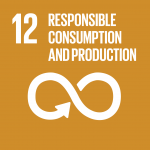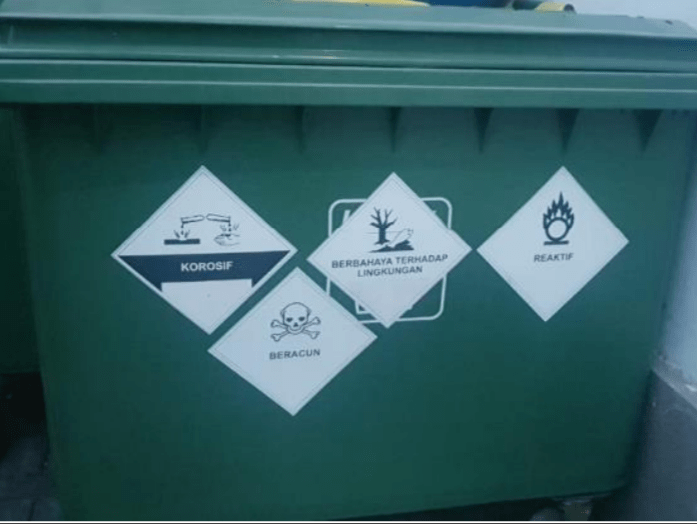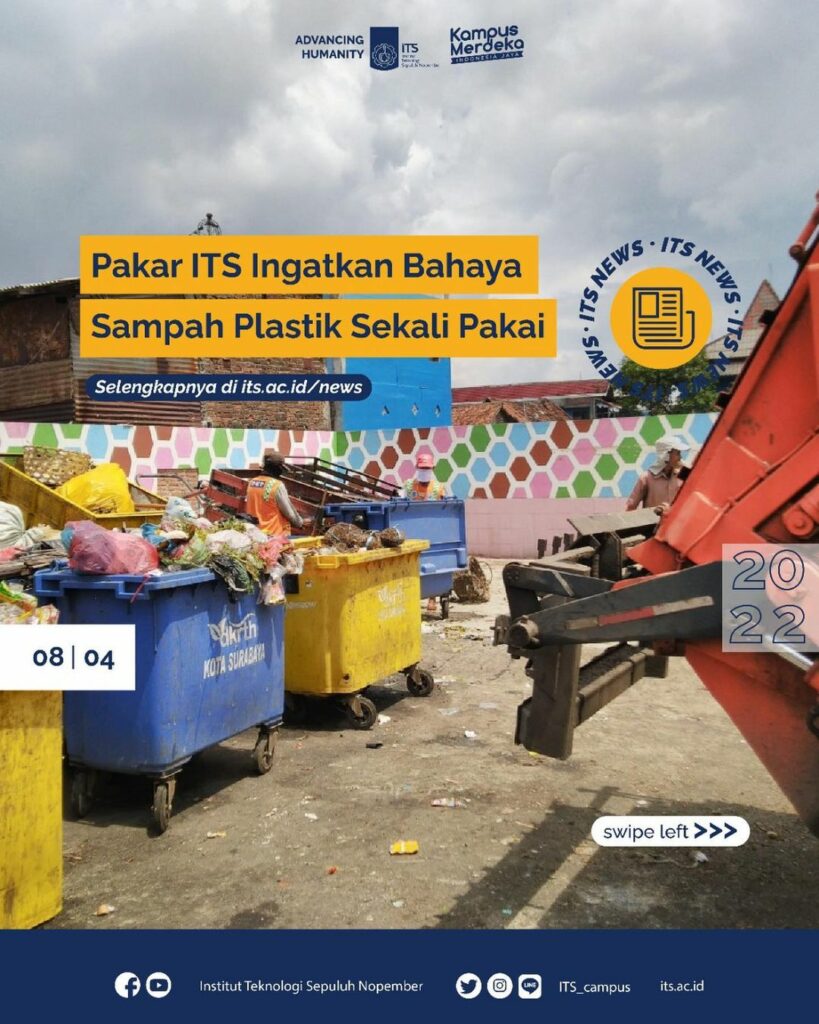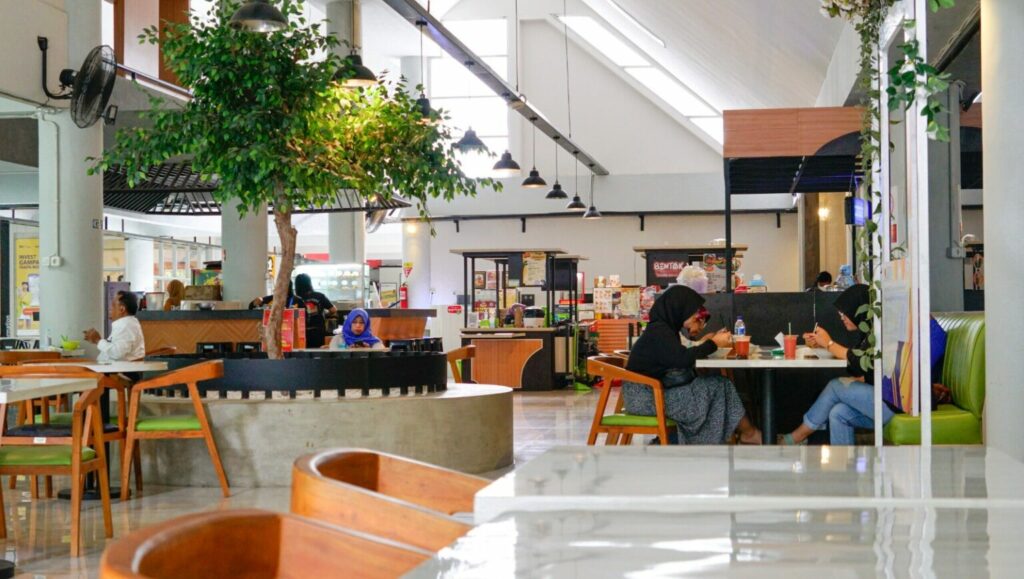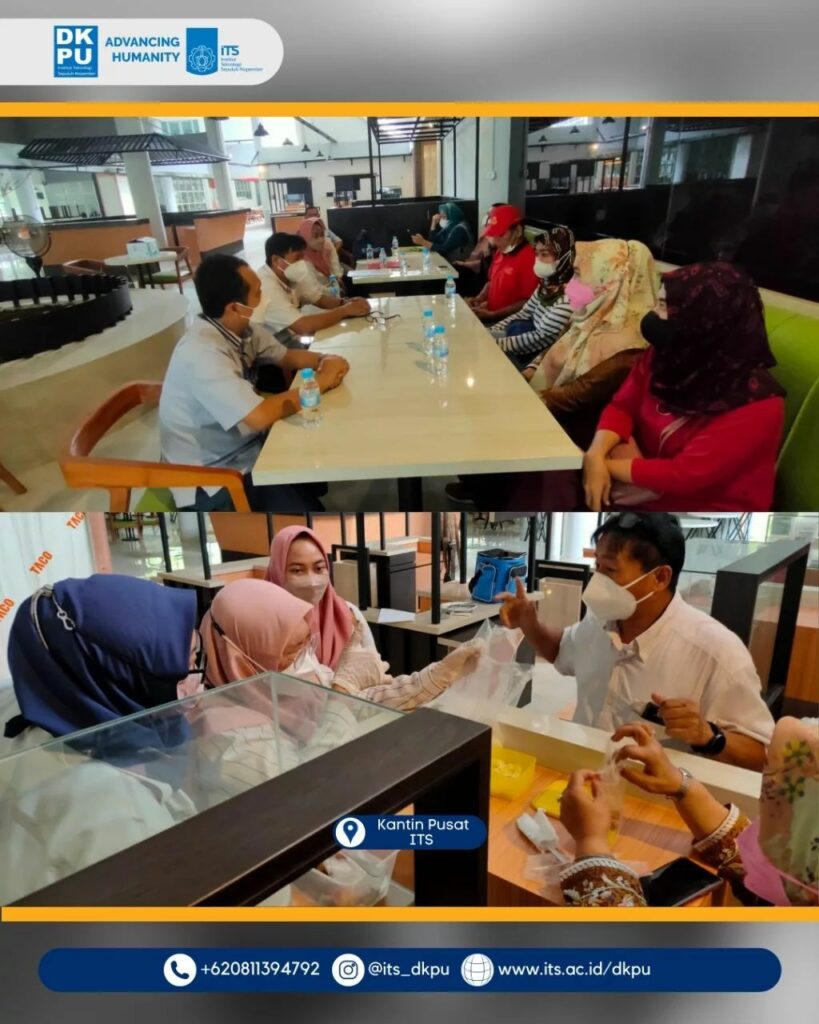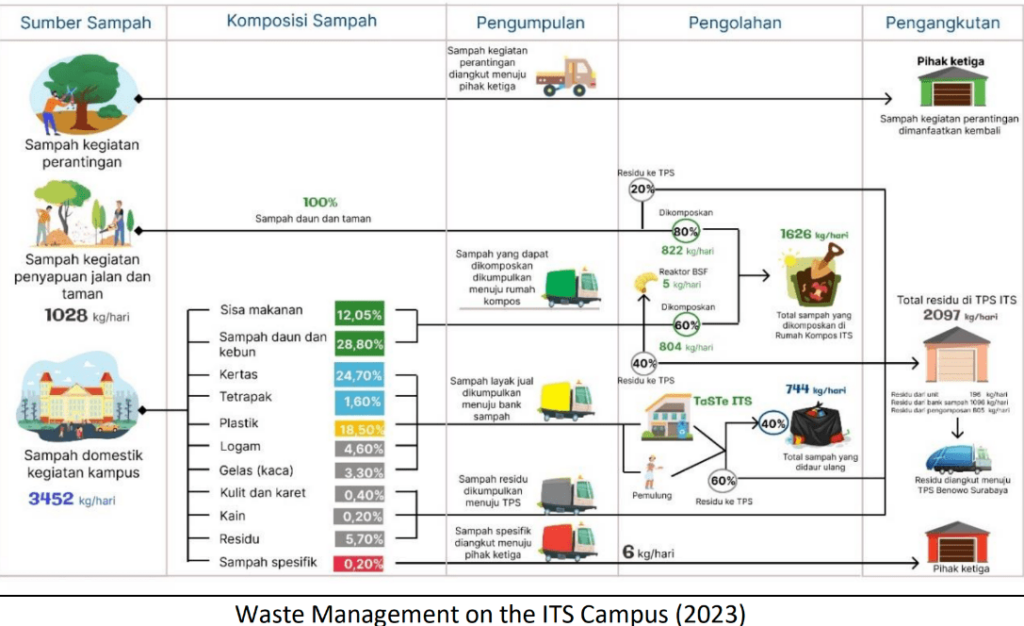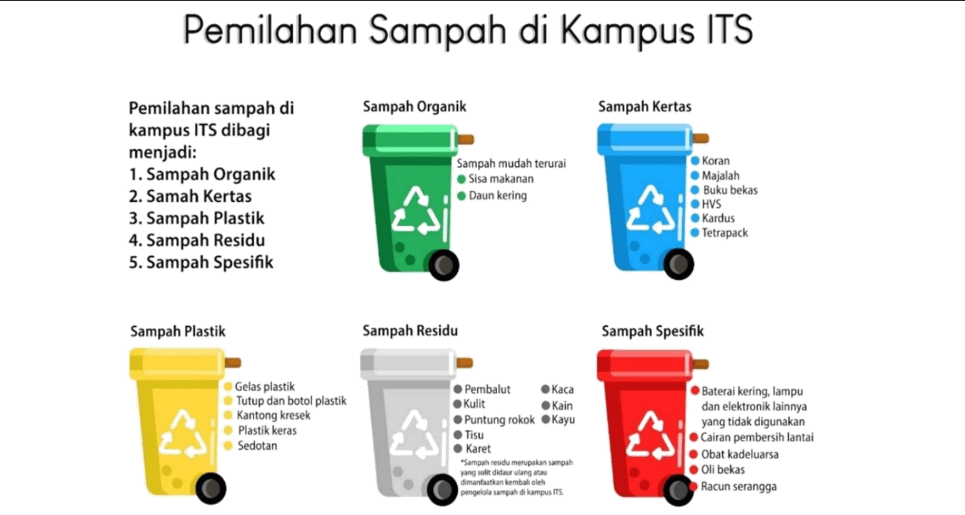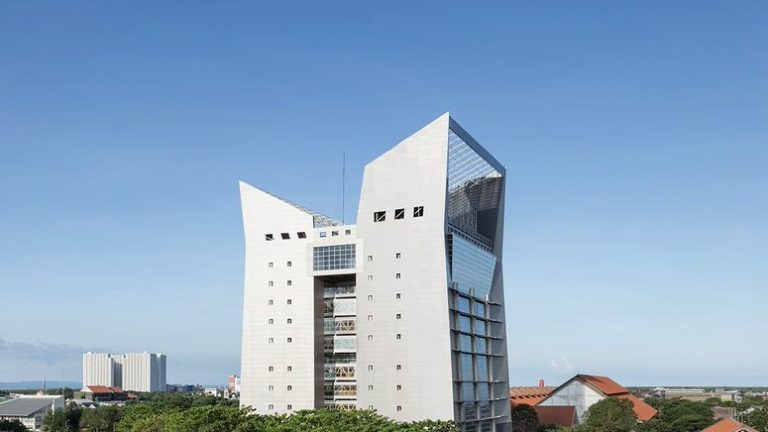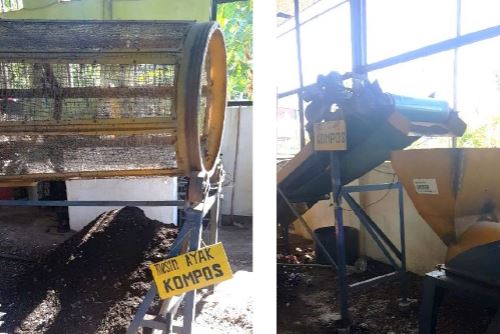“Much of the world’s economy is based around producing things for consumption. This drives the engine of industry. If we want the world to develop sustainably, we need to understand how to be more responsible at both ends of this cycle. This means promoting resource and energy efficiency, having a sustainable infrastructure, and providing access to basic services for all.”
(THE Impact Rankings)
SDG 12: RESPONSIBLE CONSUMPTION AND PRODUCTION
Operational measures
Ethical Sourcing Policy: Sustainable Practices for Food and Supply Procurement at ITS
ITS is committed to supporting the Sustainable Development Goals (SDGs) through ethical and sustainable campus practices, formalized in both the 2021 Rector’s Statement Letter on Achieving SDGs and the 2024 Rector’s Circular Letter on Green and Sustainable Campus. These policies outline guidelines for ethical sourcing of food and supplies, focusing on reducing waste, supporting local industries, and prioritizing environmentally friendly practices. Key initiatives include:
ITS minimizes single-use plastics from procurement through disposal, as part of its efforts to create a sustainable campus environment (2021 Rector’s Statement Letter, Chapter III: Environment, Point F).
ITS follows a paperless office policy and reduces waste from materials like plastic and styrofoam, contributing to energy conservation in construction and renovation (2021 Rector’s Statement Letter, Chapter III: Environment, Point M).
ITS promotes the provision of clean and healthy canteens on campus, ensuring all canteens using safe, pesticide-free ingredients sourced ethically from responsible farming and fishing practices (2021 Rector’s Statement Letter, Chapter III: Environment, Point N; 2024 Rector’s Circular Letter, Chapter: Health).
ITS prioritizes the use of domestic products, supporting Micro, Small, and Medium Enterprises (MSMEs) through campus procurement. Partnerships are selected based on their commitment to environmentally friendly principles, ensuring fairness and transparency in sourcing practices (2024 Rector’s Circular Letter, Chapter: Economy).
ITS strives to provide campus food that aligns with environmental sustainability, choosing products from ethical, sustainable agriculture, livestock, and fisheries to meet high standards for health and sustainability (2024 Rector’s Circular Letter, Chapter: Health).
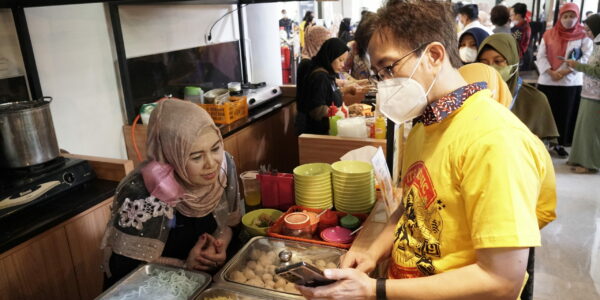
Safe and Responsible Hazardous Waste Disposal Policy at ITS
ITS has established a comprehensive policy on the management of hazardous and toxic waste (B3) and wastewater, embedded in the Standard Operating Procedures (SOP) for Hazardous Waste and Wastewater Management and the 2024 Rector’s Circular on Green and Sustainable Campus. This policy prioritizes principles of environmental sustainability and safety, with key practices that include systematic waste sorting, safe storage, and transport by certified partners to minimize environmental impact. Key practices include:
- ITS is committed to managing hazardous and toxic waste (B3) responsibly and sustainably (2024 Rector’s Circular on Green and Sustainable Campus, Chapter: Waste Management)
- Management Flow of B3 Waste: B3 waste from various departments is sorted and packaged for safe storage and transport to certified third parties. (SOP for Hazardous Waste and Wastewater Management)
- Temporary Medical Waste Storage: Medical waste, including used gloves and expired medications, is stored in designated containers and freezers, following strict packaging procedures. (SOP for Hazardous Waste and Wastewater Management)
- Academic Waste Storage: Non-medical waste from laboratories is stored in labeled drums and containers, and kept in sheltered areas to prevent contamination. (SOP for Hazardous Waste and Wastewater Management)
- Transportation Collaboration: ITS collaborates with certified third parties for the collective transport of hazardous waste, scheduled each semester. (SOP for Hazardous Waste and Wastewater Management)
Temporary storage of non-medical waste, such as academic laboratory waste, is placed in labeled drums and containers according to the characteristics of each type of B3 waste. These are organized on shelves or in storage areas that have a roof and are protected from sunlight.
Full policy:
SOP for Hazardous Waste and Wastewater Management
Rector’s Circular Letter on Green and Sustainable Campus (2024)
Waste Disposal and Recycling Policy at ITS
ITS is committed to minimizing waste sent to landfills by implementing structured waste management and recycling processes. Guided by the Waste Management Procedures at ITS, the policy includes key principles and practices that support environmental sustainability through comprehensive waste reduction and recycling strategies:
Waste Sorting Procedures: Waste is categorized into five types—organic, paper, plastic, residual, and specific waste—facilitating systematic sorting and recycling. This initial sorting process helps minimize the amount of waste that ends up in landfills. (Chapter II, Point 2.1)
Waste Collection and Transportation Procedures: Waste is collected and transported with a clear protocol to prevent mixing sorted materials, thus supporting recycling and reducing landfill contributions. Recyclable waste is directed to ITS’ Waste Bank (TaSTe ITS) or composting facilities (Chapter II, Point 2.3)
Waste Processing Procedures: ITS operates a composting program that reduces daily organic waste by approximately 25%, significantly lowering landfill volume. Additionally, recyclable materials are processed through TaSTe ITS, where collected waste is categorized, weighed, and recorded before sale to recycling companies.(Chapter II, Point 2.4)
Additionally, ITS generates 0.5 tons of organic waste per day, primarily consisting of leaf litter and garden debris. This organic waste is processed in ITS’ composting facility, producing approximately 90 kg of compost daily. The compost is then used for fertilizing plants across campus. ITS aims to process 100% of the organic waste generated on campus through composting, thereby reducing the amount of waste sent to landfills annually (Sustainability Report 2023).
Full policy:
Minimizing Plastic Use Policy at ITS
ITS has a clear policy aimed at minimizing plastic use across campus, promoting sustainable practices in alignment with SDG 12 for responsible consumption. This commitment is detailed in the 2024 Rector’s Circular Letter to ITS’ Commitment as a Green and Sustainable Campus, with the following key initiatives:
ITS encourages the reduction of single-use plastics in procurement, distribution, and disposal processes. (Chapter 8: Waste Management, Point B)
To minimize plastic bags, food containers, and beverage packaging in both on-campus and off-campus activities, ITS promotes the use of alternatives that are reusable and environmentally friendly. (Chapter 8: Waste Management, Point C)
ITS provides water dispensers and washable cups in workspaces and meeting rooms to reduce reliance on single-use plastic bottled water. (Chapter 8: Waste Management, Point D)
ITS promotes digital platforms for announcements and events, significantly reducing paper and plastic waste while enhancing communication efficiency. (Chapter 8: Waste Management, Point E)
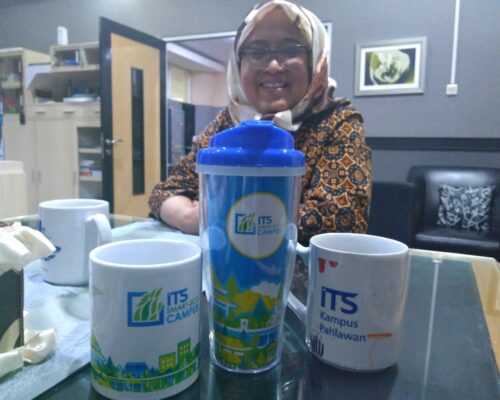
Dr. Dra. Agnes Tuti Rumiati, MSc, displays a tumbler and mug with images of the ITS Smart Eco Campus, intended as plastic-free drinking containers for use on the ITS campus.
Minimisation of Disposable Items Policy at ITS
ITS has established a clear policy to minimize the use of disposable items across campus. This commitment is outlined in the 2024 Rector’s Circular Letter to ITS’ Commitment as a Green and Sustainable Campus, with the following key initiatives:
Encouraging waste management efforts to reduce campus activity waste by implementing the 3R principles (Reduce, Reuse, Recycle) through waste sorting at the source, minimizing waste accumulation, recycling, and reusing generated waste. (Chapter 8: Waste Management, Point A)
ITS encourages the reduction of single-use plastics in procurement, distribution, and disposal processes. (Chapter 8: Waste Management, Point B)
To minimize plastic bags, food containers, and beverage packaging in both on-campus and off-campus activities, ITS promotes the use of alternatives that are reusable and environmentally friendly. (Chapter 8: Waste Management, Point C)
ITS promotes digital platforms for announcements and events, significantly reducing paper and plastic waste while enhancing communication efficiency. (Chapter 8: Waste Management, Point D)
@its_campus on Instagram: ITS expert highlights the risks of single-use plastics and promotes sustainable alternatives.
Full Policy:
Rector’s Circular Letter to ITS’ Commitment as a Green and Sustainable Campus (2024)
Minimization of Disposable Items and Supplier Compliance at ITS
The Standard Operational Procedure (SOP) for ITS Main Canteen on Sustainable Canteen Management: Halal, Safe, and Healthy Culinary Zone (Zona KHAS) policy extends ITS’ commitment to environmental sustainability across all food service providers and suppliers in its main dining facility. This policy ensures that plastic reduction and sustainable practices are applied comprehensively, not only by tenants but also by suppliers, fostering a sustainable supply chain within the ITS environment.
All tenants within Main Canteen of ITS are required to reduce plastic and disposable items while ensuring that their offerings align with halal, safe, and health-focused standards. (Chapter II, Section: Tenant Obligations)
Suppliers must minimize disposable packaging and prioritize environmentally friendly options. Local sourcing is encouraged to reduce emissions and support local economies. (Chapter III, Section: Ensuring Policy Implementation with Suppliers)
ITS regularly monitors both tenants and suppliers for adherence to this policy. Non-compliant vendors may face warnings or contract termination, maintaining high standards across the facility. (Chapter III, Section: Monitoring)
The ITS Main Canteen has transformed into the first KHAS Zone (Special Area) for higher education institutions in East Java.
Full policy:
Minimization of Disposable Items and Outsourced Services Compliance at ITS
The Standard Operational Procedure for ITS Main Canteen on Sustainable Canteen Management: Halal, Safe, and Healthy Culinary Zone (Zona KHAS) policy exemplifies ITS’ dedication to minimizing environmental impact by extending sustainable practices to its supply chain. This policy mandates that all suppliers—including those providing equipment, packaging, and other operational essentials—adhere to ITS’s sustainability standards. These standards emphasize reduced plastic use, eco-friendly packaging, and support for local sourcing, thus minimizing waste and carbon emissions across ITS operations.
All suppliers must comply with ITS’ plastic reduction policy. This includes minimizing the use of single-use and disposable items and prioritizing sustainable materials in packaging and other goods provided to ITS Main Canteen (Chapter III, Section: Ensuring Policy Implementation with Suppliers)
ITS encourages tenants and suppliers to source materials from local producers. This not only supports local economies but also reduces transportation-related emissions (Chapter II, Section: Tenant Obligations)
ITS actively monitors suppliers for adherence to sustainability requirements. Suppliers failing to meet these standards may face restrictions or discontinuation of contracts (Chapter III, Section: Monitoring)
The implementation of the national program, KHAS ZONE (Safe, Healthy, and Halal Canteen) in the ITS Main Canteen.
Full policy:
Proportion of recycled waste
Waste Tracking and Management at ITS
ITS has implemented a comprehensive waste management system as mentioned in the Waste Management at ITS and Sustainability Report (2023). This approach includes initiatives to minimize waste and enhance tracking capabilities. Key waste management and tracking initiatives:
- 3R Waste Policy: ITS enforces a 3R (Reduce, Reuse, Recycle) policy across all departments. Each unit has a contractual obligation to reduce waste in accordance with ITS’ sustainability goals, ensuring that at least 50-75% of waste management activities adhere to this policy.
- Source Separation and Composting: Waste is sorted into biodegradable, paper, plastic, and residual categories, with clearly labeled bins across campus. Organic waste, including food scraps and leaf litter, is composted at the ITS Compost House or processed with Black Soldier Fly larvae, generating nutrient-rich compost for landscaping and reducing landfill contributions.
- Integrated Waste Savings (TaSTe ITS): The TaSTe ITS waste bank program encourages the ITS community to deposit recyclables like paper, plastic, glass, and metal. This initiative promotes waste recycling and allows participants to check their balance through an app, supporting a circular economy approach.
- Final Processing and Waste-to-Energy Conversion: Residual waste is transported to a temporary storage facility, then sent to the Benowo landfill equipped with a waste-to-energy plant, converting waste into electricity. This ensures that even non-recyclable waste contributes to ITS’ sustainable energy goals.
Through these systems, ITS recycles over 50% of campus waste and promotes sustainable practices.
Full Report:
Publication of a sustainability report
Sustainability Report 2023 of ITS Surabaya
The Sustainability Report 2023 documents the university’s extensive environmental initiatives, tracking progress in areas such as waste management, energy conservation, water conservation, and sustainable transportation. Published annually, the report provides a comprehensive overview of ITS’ commitment to sustainability that also demonstrates transparency and dedication to sustainable development across its operations.
Sustainability-2023-1
SDG 12 IN NUMBERS
1634 metric ton
Amount of Waste Generated
929 metric ton
Amount of Waste Recycled
704 metric ton
Amount of waste sent to landfill
